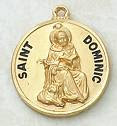Since all theology must lead to Jesus, let me develop the person of the Lord Jesus keeping in mind what was discussed in God and Time. There are three separate aspects of Christ Jesus the Lord, and they appear in that order in God's Creation. The first to appear was Christ, which means "Anointed". This is an office of the Lord. It was the "first born of all creation." The fulfillment of that office is the salvation of mankind, so before all else was created God created the Christ, through whom all else was created. The second is Jesus, the human. He came into the world at the time of the Annunciation. He was formed in the image that fancied the Father. The Father knew what He wanted to look like before He began His endeavor of creation. The third aspect is the Lord, or master. There are many different lords. We have landlords, men of noble birth, a peer of the realm, and on and on, but Jesus is the Lord of lords. He is God.
I have heard many people say that Christians have the fullness of God's revelation of Himself to man in the person of Jesus Christ, which is not entirely true. We do have the fullest revelation of God to man, but it is not yet complete. More will be revealed. This is established by St. Paul in saying, "Eye has not seen, ear has not heard, nor has it entered into the heart of man that which God has prepared for those who love Him." Then again he said, "At present we see indistinctly, as in a mirror, but then face to face. At present I know partially; then I shall know fully as I am fully known." One of the ways in which we can approach the Lord is through science. Just as the church fathers sought to know Him and explain Him through philosophy, we can seek Him and seek to explain Him through science. Surely, science will leave evidence of the existence of God. His fingerprints are everywhere in the universe, we only have to learn to read them.
Jesus is light. St. John said, "The true light, which enlightens everyone, was coming into the world." Then quoting Jesus, he said, "I am the light of the world." Every single time I ever heard someone speaking publicly on these verses and similar verses the only thing they ever mentioned was the metaphorical aspect of things, but that is not the only component to these verses. While what these people said is certainly true, Jesus enlightens our hearts and minds, He is also physical light. When we enjoy the the beating of the warm sun on our skin, that is the Lord Jesus we are feeling the direct touch of. When we watch the sun rise over the eastern mountain ranges or gaze out the window at the hustle-bustle of midday, that is the Lord Jesus making that possible through His presences in the form of light waves (will you ever look at Easter Vigil the same again while paying attention to the extinguishing of the candles and illumination of the sanctuary?). Jesus is continuously present to all time. He is omnipresent. This did not come to be by virtue of being God, but by virtue of being light.
We were made in the image of God. This speaks of the image of Jesus Christ. God knew He wanted to be about six feet tall with two arms, two legs, a symmetric body, ten or twelve fingers, roughly, etc. etc. This gives great dignity to all men and women, no matter what their creed, color or culture is.This all leaves much to be discovered, and much to be revealed. How is Jesus light? We don't understand, but we know it is true. How are we made in the image of God? Also, we do not know for certain, but the answer goes much deeper than the sermons usually given. Science can answer some of these questions we have, but not all, which we also already knew by the writings of St. Paul.
Saturday, April 21, 2007
Subscribe to:
Post Comments (Atom)





3 comments:
Arnold Sommerfeld (I am not sure who he is but I know this quote belongs to him), "Thermodynamics is a funny subject. The first time you go through it, you don't understand it at all. The second time you go through it, you think you understand it, except for one or two small points. The third time you go through it, you know you don't understand it, but by that time you are so used to it, it doesn't bother you any more." That makes me laugh! I find it very funny, but there has been another subject that for me the same statement can be applied to, but it was not funny to me. Instead it confused me and caused me consternation. It is Genesis Chapter 1. "In the beginning, when God created the heavens and the earth, the earth was a formless wasteland, and darkness covered the abyss, while a mighty wind swept over the waters. Then God said 'Let there be light,' and there was light. God saw how good the light was. God then seperated the light from the darkness. God called the light 'day,' and the darkkness He called 'night.' Thus evening came, and morning followed-the first day." Fast forward through two full days of creation. "Then God said: 'Let there be lights in the dome of the sky, to seperate day from night. Let them mark the fixed times, the days and the years, and serve as luminaries in the dome of the sky, to shed light upon the earth.' And so it happened: God made the two great lights, the greater one to govern the day, and the lesser one to govern the night; and He made the stars. God set them in the dome of the sky, to shed light upon the earth, to govern the day and the night, and to seperate the light from the darkness. God saw how good it was. Evening came, and morning followed-the fourth day."
When looking at Jesus Christ as the light that was created on the first day it makes sense, otherwise I am still left confused.
I am convinced that one day, science will reveal God. In fact, I’m sure that God used scientific laws (that He produced) in creation and human discoveries of those laws will help us to understand God.
I just have one question on your post; In your last paragraph you said, “When looking at Jesus Christ as the light that was created on the first day it makes sense, otherwise I am still left confused.” Are you indicating that Jesus Christ (the Son) is a created being? I just thought I’d ask.
Thank you for asking that question Lowtec, and now that you point it out I see that I might be accused of heresy by the statement I made. Without clearification of the statement, the accusation would be correct and I would be an Arian.
The three grewat heresies that attacked the Church from the very beginning appeared as Gnosticism, Arianism and Nestorianism. Gnosticism denied the humanity of Christ on the grounds that the human body was corrupt and not worthy to host God. Arianism denied the divinty of Christ on the grounds that a human could not possibly be God. Nesetorianism denied the dual nature of Christ on the grounds that human flesh could not bear the Divine Being, so they drew a distinction between Jesus the man and Jesus the God instead of aknowledging that Jesus was both fully God and fully man.
With all that said let me reaffirm the orthodoxy of my faith in denying all three heresies. I do believe that Jesus was fully God, fully man, begotten not made, and one in being with the Father. It is the office of the Christ that was created, that is to draw a distinction between the person of Jesus and the "job" of the Christ, which is to save mankind from sin. While the person of Jesus was eternally existant, the office of the Christ was only necessary at the instant of creation because before that, there was no sin and no possibilty of sin.
Post a Comment